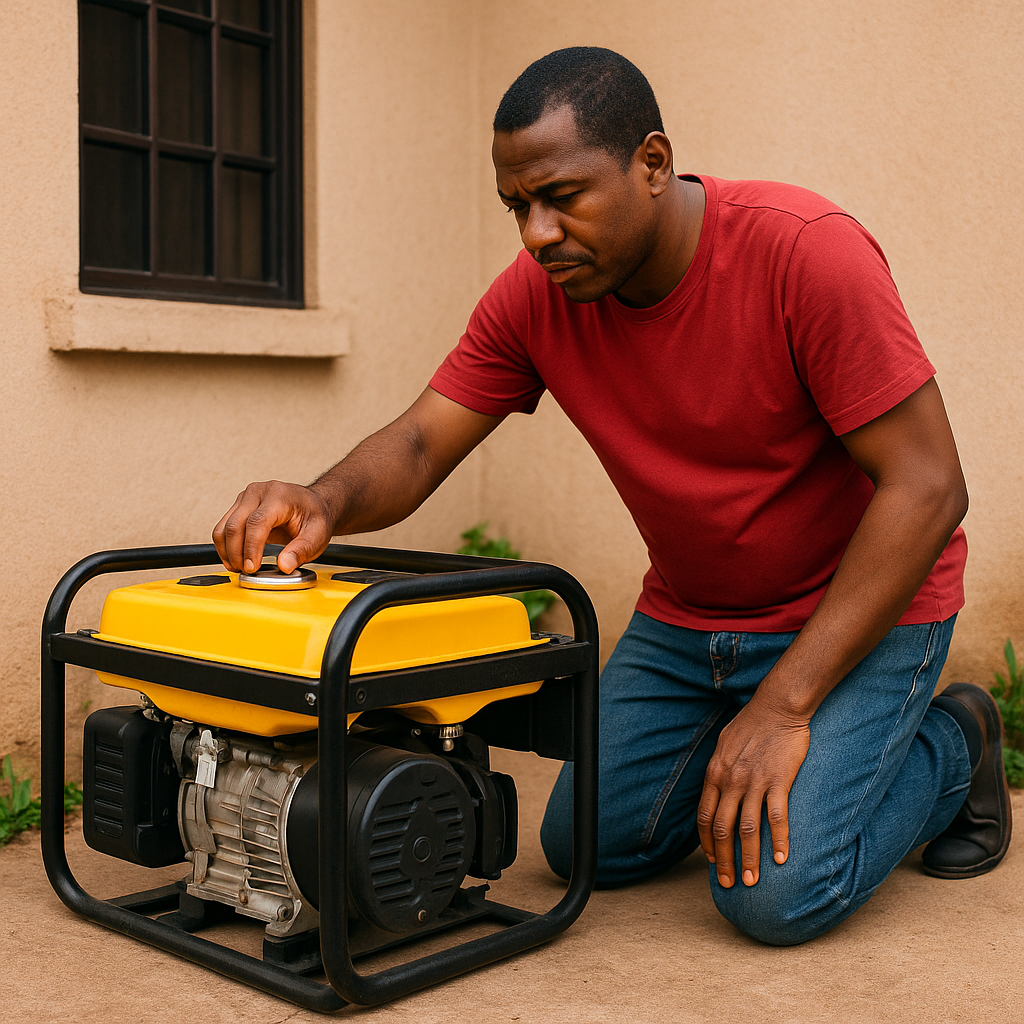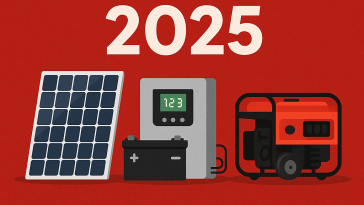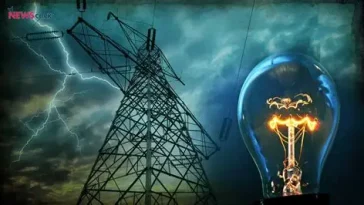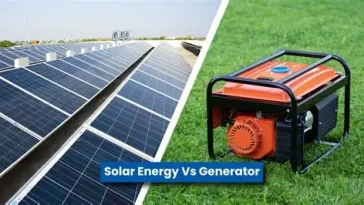In today’s Nigeria, where power outages are frequent and often unpredictable, the sound of a generator running has become as common as car horns and church bells. Whether you live in Lagos, Owerri, Abuja, or Kaduna, the question many generator owners are asking is: “How long can I run my generator daily without causing damage?”
It’s a smart question — because while generators are built to provide backup electricity, they’re not designed to run forever. Pushing your generator beyond its safe limits can lead to engine failure, high fuel costs, overheating, or even total burnout.
This comprehensive guide breaks it all down:
-
Safe daily runtime for different generator types
-
Factors that affect how long your generator can run
-
The dangers of excessive usage
-
Tips for extending lifespan and how to maintain your generator properly
Let’s get into it.
🕒 So, How Many Hours a Day Can I Run My Generator?
The short answer? It depends on the type of generator you have, its engine capacity, fuel type, load, and maintenance history.
🔹 1. Small Portable Generators (1kVA – 3.5kVA)
These are the most common in Nigerian homes, powering fans, TVs, lights, and sometimes a fridge.
-
Recommended daily runtime: 5–8 hours continuously
-
Maximum (safe) daily runtime: 10–12 hours with breaks
👉 Overworking these small units daily for 16+ hours can cause engine fatigue, oil burnout, and overheating.
🔹 2. Medium Generators (4kVA – 7.5kVA)
Often used in two-bedroom flats or shops, these can carry more appliances.
-
Recommended daily runtime: 8–12 hours (split in two sessions)
-
Maximum runtime: 14–16 hours with proper load management and oil checks
These generators can handle more, but they still need cooling-off periods after long stretches.
🔹 3. Large Industrial Generators (10kVA – 20kVA)
Used in estates, businesses, and large homes.
-
Recommended runtime: 12–20 hours
-
Maximum runtime: Up to 24 hours if professionally serviced and well-maintained
These heavy-duty models are built for longer performance but still need regular oil top-ups, filter changes, and proper ventilation.
🛑 What Happens If I Run My Generator Too Long?
Running your generator non-stop may seem like a good idea, especially when there’s no NEPA light. But here are the potential risks:
🔸 1. Engine Overheating
Engines generate a lot of heat. Without enough cooling breaks, parts expand excessively, leading to wear and eventual failure.
🔸 2. Oil Burnout and Engine Seizure
Oil lubricates moving parts. Long usage burns oil faster. If it dries out, your generator can knock or seize.
🔸 3. Carbon Buildup
Continuous burning of fuel causes carbon deposits in the cylinder head and valves, reducing performance over time.
🔸 4. Exhaust Blockage
Generators running too long in dusty or unventilated areas may develop exhaust or muffler blockages, causing shutdowns.
🔸 5. Fuel Waste and Fire Risk
Generators that run beyond capacity waste fuel and increase the risk of leaks, fuel overflow, or even fire if not properly managed.
🧪 Key Factors That Determine Safe Generator Running Time
✔️ 1. Generator Type & Size
A 1.2kVA Elepaq can’t perform like a 10kVA Perkins diesel gen. The bigger the engine, the longer it can typically run.
✔️ 2. Engine Type
4-stroke engines (most common in Nigeria) handle long use better than 2-stroke engines. Ensure you’re buying genuine 4-stroke copper-coil gens from trusted sellers like Elomart.
✔️ 3. Cooling System
Generators with air-cooling need more rest breaks than those with water cooling. Make sure your gen is well-ventilated.
✔️ 4. Fuel Tank Size
The larger the tank, the longer the generator can run — but don’t rely only on tank size. Always check oil levels, not just fuel.
✔️ 5. Load Management
If you overload the gen with appliances beyond its rated capacity, it’ll struggle, heat up faster, and be forced to shut down.
🛠 How to Maintain Your Generator Properly for Long Usage
Running your generator for extended periods is fine — if you’re doing the right maintenance. Here are practical tips every Nigerian generator owner should follow:
🔧 1. Change Oil Regularly
-
For new generators: First oil change after 20 hours
-
Afterwards: Every 50–100 hours of use
Use SAE 10W-30 or 20W-50 depending on your gen model.
🔧 2. Clean the Air Filter Weekly
Dusty conditions mean clogged filters. Clean with a dry brush or replace every 1–2 months.
🔧 3. Check Spark Plug Every 2 Weeks
Remove, clean, or replace if there’s oil, soot, or rust. This helps maintain ignition quality.
🔧 4. Inspect Fuel Line and Tank
Drain old fuel and clean tank once a month to prevent gum or dirt buildup.
🔧 5. Avoid Overloading
Don’t plug in ACs, water heaters, or heavy irons on small generators. It kills your engine faster than poor maintenance.
🔧 6. Rest Periods
Give your gen a 15–30 min break after every 6–8 hours of use. This lets the engine cool and prevents internal damage.
⚡ Safe Generator Running Time in Nigeria – Expert Tips
Whether you’re in a rural village or a Lagos apartment, here are some realistic power usage habits that can help:
-
Run generator in the evening for 5–6 hours (peak family time)
-
Take breaks between sessions if you must use it in the morning and at night
-
Use a fuel-efficient model — like those sold by Elomart
-
Avoid overnight running if you’re not using it to power critical appliances
Remember: Your generator is not NEPA. It’s designed to support electricity, not replace it permanently.
📈 Real-World Case Study: “How I Destroyed My Gen in 3 Weeks”
Jide, a barber in Ibadan, shares:
“When I first bought my Elepaq gen, I ran it from morning till night, sometimes 18 hours a day. By the third week, it started smoking and shutting down. I later found out I never changed the oil, and the spark plug was black. It cost me ₦18,000 to repair.”
The lesson? Even a brand-new generator will fail if you push it too hard without routine care.
🔍 How to Tell You’re Overrunning Your Generator
Here are warning signs that you’ve gone past the safe daily limit:
-
Hot casing and burning smell
-
Smoke or unusual noise
-
Difficulty restarting after switching off
-
Oil level drops faster than usual
-
Lights flicker or appliances go off while gen is running
If you experience any of these, stop the generator immediately, let it cool, and check oil, spark plug, or load settings.
💼 When to Buy a Bigger or Backup Generator
If your electricity needs have grown, or if you’re constantly using your gen for 12+ hours daily, consider upgrading.
Signs it’s time to buy a bigger gen:
-
You’ve added a fridge, deep freezer, or AC
-
Gen can’t carry everything anymore
-
Frequent overheating and shutdown
-
Fuel cost has gone up due to long runtime
At Elomart, we help Nigerian households choose the right generator size for daily use — based on your appliances, budget, and runtime needs.
✅ Elomart Recommends: Long-Running Generators for Nigerian Homes
For reliable performance and longer runtimes, here are a few top picks available at Elomart:
-
Firman ECO8990ES (7.5kVA): Long runtime + fuel efficiency
-
Haier Thermocool Optima 3.75kVA: Smooth performance for up to 15 hours
-
Lutian LT3900: Rugged design for moderate daily usage
-
Sumec Firman SPG3000E2: Ideal for 6–8 hours daily in smaller homes
All come with warranty, expert support, and nationwide delivery from Elomart.
🔚 Conclusion: Balance is the Key
So, how long can you run your generator daily without damage? The honest answer is: it depends — on your generator type, usage style, maintenance routine, and ventilation. But for most Nigerians:
-
5–12 hours daily with breaks is safe
-
Always monitor oil levels, load size, and fuel quality
-
Avoid overnight or continuous 24-hour usage unless you own an industrial-grade diesel generator
-
Don’t wait until your gen breaks down — service it before it fails
Treat your generator well, and it will serve you for years.





 No products in the cart.
No products in the cart.